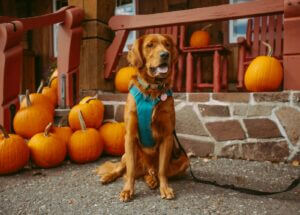When it comes to feeding your pint-sized furry companion, one size doesn’t fit all. Organic Dog Food for Small breeds have unique nutritional needs due to their compact size, fast metabolisms, and delicate digestive systems. But with so many options on the market, from grain-free to organic and even raw diets, choosing the right food can feel overwhelming. Let’s break down these choices so you can make an informed decision for your small dog’s health and happiness.
Why Small Breeds Need Special Attention in Their Diet
Small dogs, like Chihuahuas, Dachshunds, and Yorkies, may be small in stature, but their dietary requirements can be surprisingly complex. They burn calories quickly due to their high energy levels, making nutrient-dense meals essential. Additionally, they often have smaller stomachs, meaning their food must be rich in nutrients to avoid deficiencies.
Key considerations of Organic Dog Food for small-breed diets include:
- High-Calorie Needs: Small dogs need more calories per pound of body weight than larger breeds.
- Smaller Kibble Size: Kibble should be easy to chew and swallow to prevent choking.
- Balanced Nutrients: A diet rich in protein, healthy fats, vitamins, and minerals is crucial.
Now, let’s explore the top dietary options: grain-free, organic, and raw dog food.
Grain-Free Dog Food: Is It Right for Your Small Dog?
Grain-free dog food has surged in popularity over the past decade. It eliminates grains like wheat, corn, and soy, which are common allergens for some dogs. Instead, grain-free formulas rely on alternative carbohydrate sources like sweet potatoes, lentils, or peas.
Benefits of Grain-Free Organic Dog Food for Small Breeds
- Easier Digestion: Many small dogs have sensitive stomachs, and grain-free options can reduce digestive issues like bloating or diarrhea.
- Allergy Relief: If your dog scratches excessively or has recurring ear infections, a grain-free diet might help.
- High Protein Content: Grain-free formulas often contain more protein, which is essential for maintaining lean muscle mass in small breeds.
Potential Drawbacks
While grain-free Organic Dog Food has its benefits, it’s not suitable for every small dog. Recent studies by the FDA have linked certain grain-free diets to canine dilated cardiomyopathy (DCM), a heart condition. Always consult your veterinarian before transitioning your dog to a grain-free diet.
Best Grain-Free Dog Food Brands for Small Breeds
- Blue Buffalo Freedom Small Breed: Made with high-quality deboned chicken and free from artificial preservatives.
- Wellness CORE Grain-Free Small Breed: Offers a nutrient-packed, protein-rich recipe ideal for active dogs.
- Taste of the Wild Appalachian Valley: Features novel proteins like venison and small-sized kibble perfect for tiny mouths.
Organic Dog Food: The Natural Choice
Organic dog food is made with ingredients that are free from synthetic pesticides, antibiotics, and GMOs. For pet parents who prioritize clean eating, organic dog food offers peace of mind and a nutrient-rich option for their pups.
Benefits of Organic Dog Food for Small Breeds
- Fewer Chemicals: Organic ingredients mean fewer chemicals, promoting better overall health.
- Improved Digestion: The absence of artificial additives can reduce digestive problems.
- All-Natural Ingredients: Organic food often includes wholesome, recognizable ingredients like real meat, fruits, and vegetables.
Things to Consider of Organic Dog Food
Organic dog food tends to be pricier than conventional options. Additionally, not all “organic” labeled products meet USDA standards, so it’s essential to read the label carefully.
Top Organic Dog Food Brands for Small Breeds
- Castor & Pollux Organix Small Breed: USDA-certified organic, featuring organic free-range chicken and superfoods.
- Tender & True Organic Small Breed: Offers grain-free and organic recipes perfect for small dogs.
- Newman’s Own Organics: A budget-friendly option that doesn’t compromise on quality.
Raw Dog Food: A Controversial Yet Beneficial Choice
The raw food diet mimics what dogs might eat in the wild: raw meat, bones, and fresh vegetables. Advocates argue that raw diets provide more natural and bioavailable nutrition, but they require careful preparation and vet consultation.
Benefits of a Raw Diet for Small Breeds
- Shiny Coats and Healthy Skin: Raw diets are rich in fatty acids that promote a glossy coat.
- Improved Dental Health: Chewing raw bones can help prevent plaque buildup.
- Higher Energy Levels: Many pet parents report increased vitality in their dogs after switching to raw food.
Challenges of Feeding a Raw Diet
- Risk of Bacterial Contamination: Improper handling of raw food can expose your dog to harmful bacteria like salmonella.
- Nutritional Imbalances: Raw diets require careful planning to ensure your dog gets all essential nutrients.
- Cost and Convenience: Preparing raw meals can be time-consuming and expensive.
Best Raw Dog Food Options for Small Breeds
- Primal Pet Foods Freeze-Dried Nuggets: A convenient raw option made with organic produce and high-quality meat.
- Instinct Raw Boost Mixers: Freeze-dried raw toppers to enhance your dog’s kibble.
- Stella & Chewy’s Raw Dinner Patties: A balanced raw meal that’s easy to serve.
How to Choose the Best Option for Your Small Dog
With so many choices, how do you decide between grain-free, organic, or raw? Here are a few tips:
- Consult Your Veterinarian: Your vet knows your dog’s health history and can provide personalized recommendations.
- Observe Your Dog: Pay attention to how your dog reacts to their current food. Are they energetic with a shiny coat, or do they seem lethargic with digestive issues?
- Read Labels Carefully: Look for high-quality protein sources, minimal fillers, and any certifications like USDA Organic.
- Transition Slowly: When switching to a new diet, gradually mix the new food with the old to prevent stomach upset.
Additional Tips for Feeding Small Breeds
- Portion Control: Overfeeding can lead to obesity, which is especially dangerous for small dogs.
- Meal Frequency: Small breeds often do better with multiple small meals throughout the day rather than one or two large meals.
- Hydration: Always provide fresh water to keep your pup hydrated.
- Treats in Moderation: Choose healthy treats that complement their diet.
Feeding your small dog doesn’t have to be complicated. Whether you opt for grain-free, organic, or raw food, the key is choosing a diet that aligns with your dog’s unique needs. By providing high-quality nutrition, you’re giving your furry friend the best chance at a long, healthy, and happy life.

